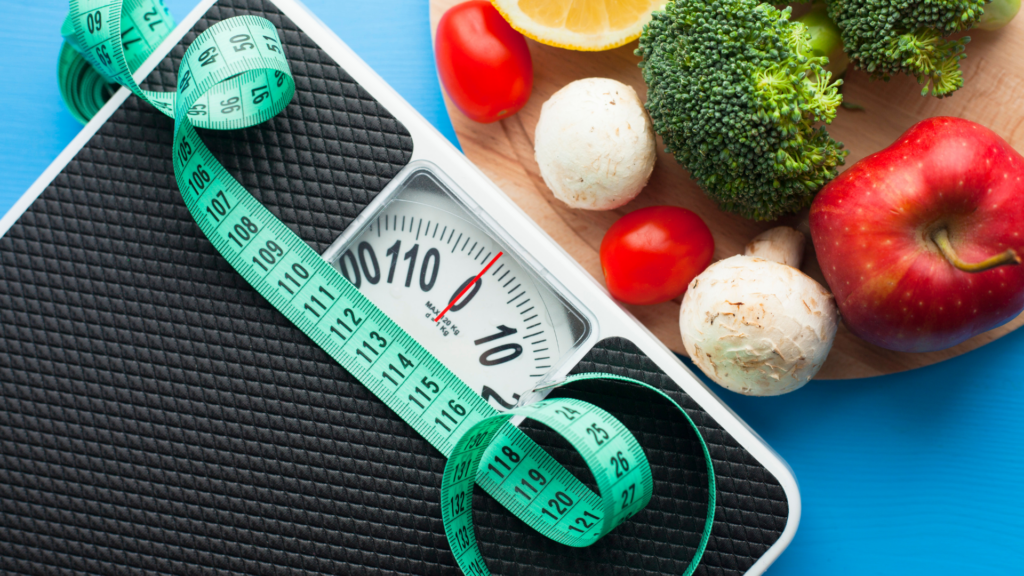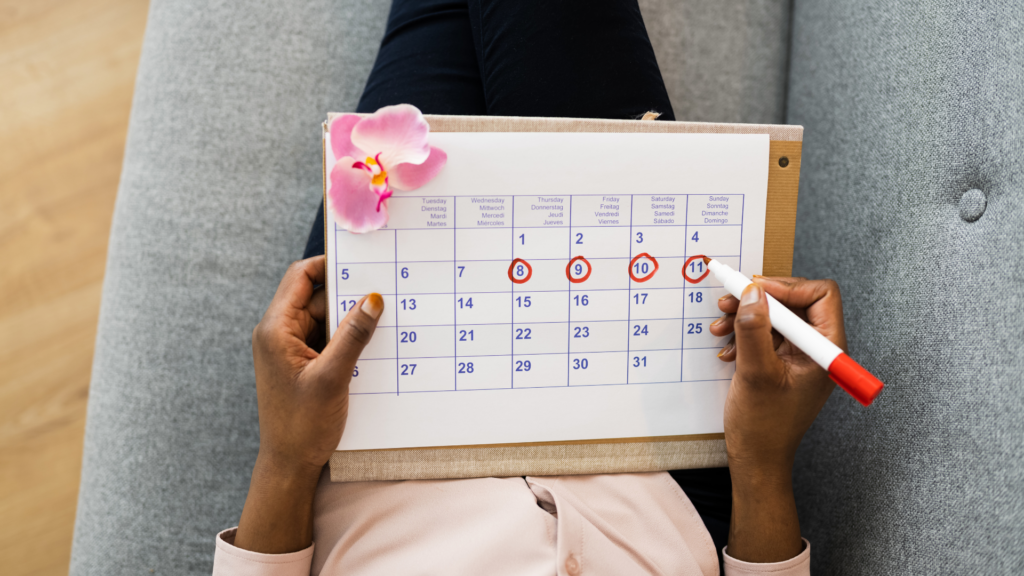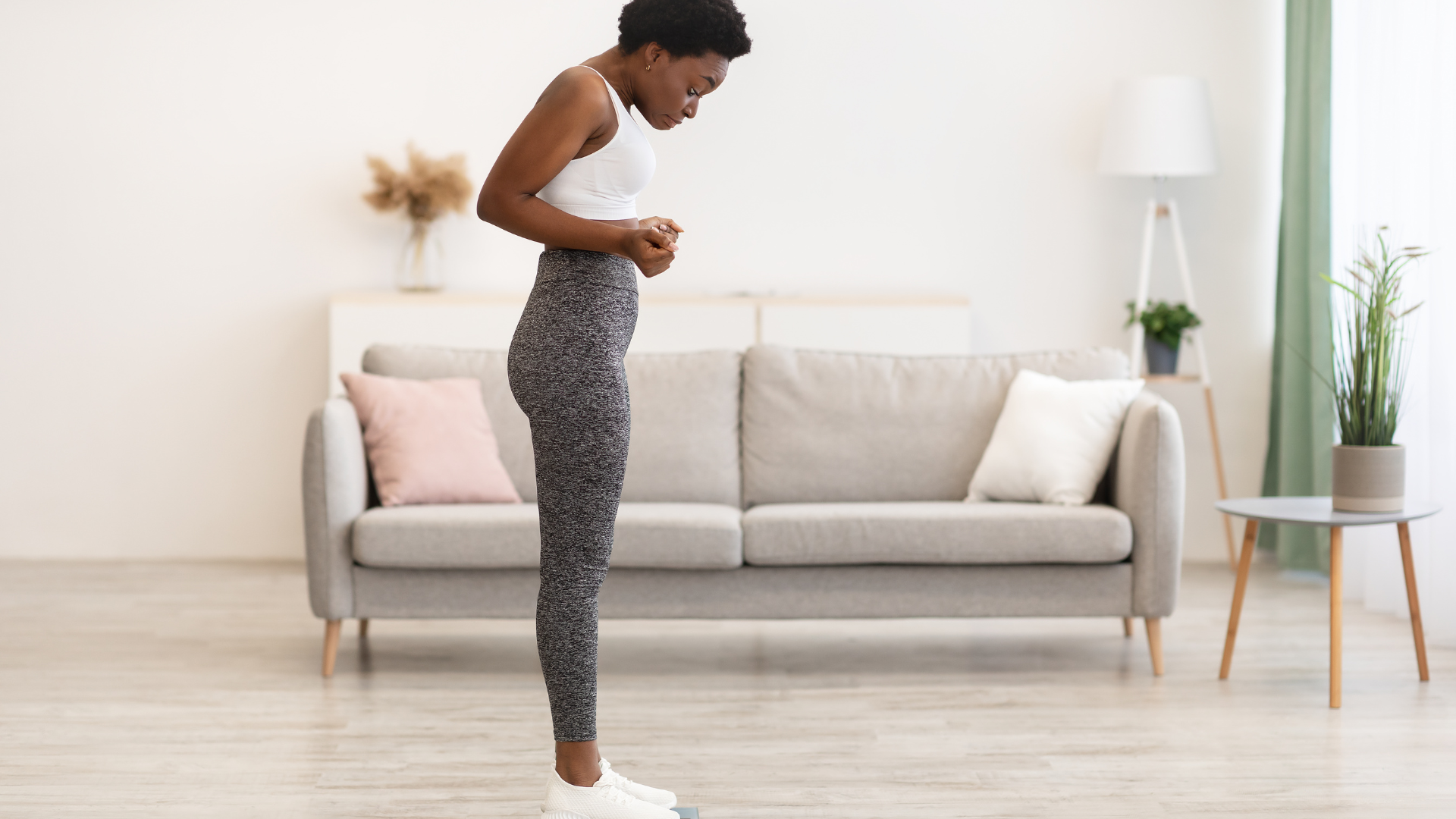The week before your period can be tough, with symptoms like bloating and craving unhealthy food. But is premenstrual syndrome (PMS) a legitimate issue? Yes. In fact, PMS is a natural occurrence and can cause temporary weight gain. Read further to find out why.
Understanding Period Weight Gain

During your menstrual cycle, it’s normal for your weight to fluctuate. In the days leading up to your period, you may experience a slight increase in weight due to water retention. This temporary weight gain typically occurs across various parts of the body, such as the face, abdomen and limbs.
The additional weight you notice on the scale during your period is typically due to water retention rather than actual body fat. It usually peaks in the days before your period starts and gradually creeps up within three to five days after menstruation begins.
Not everyone experiences significant weight gain before their period. However, if you find yourself consistently gaining more weight each month, you should consult a health care provider to rule out any underlying medical conditions.
Causes of Premenstrual Weight Gain

According to the U.S. Department of Health and Human Services Office of Women’s Health, around 90% of women encounter premenstrual symptoms like bloating, headaches and mood swings.
PMS weight gain is directly linked to hormonal fluctuations during the luteal phase, which is the second half of the menstrual cycle, occurring after ovulation and before menstruation begins. This phase is characterized by significant hormonal shifts that can affect the body’s water balance and metabolism: Cyclic variations in sex hormones. Fluctuations in pituitary hormones. Changes in prostaglandin levels. Fluctuations in certain brain chemicals like serotonin.
The most common symptoms of PMS include mood swings, bloating, fatigue, hot flashes and headaches. Some women may notice breast tenderness, increased cravings for specific foods, constipation and a desire for sweet, salty or high-fat foods. Satisfying these cravings might actually make symptoms worse.
Elevated levels of estrogen and progesterone in the weeks leading up to menstruation can lead to fluid retention. This hormonal surge relaxes blood vessels and promotes salt retention, resulting in temporary water storage and weight gain.

Progesterone, a hormone that peaks before your period, can stimulate your appetite and lead to increased food cravings. Additionally, a drop in magnesium levels pre-menstruation can trigger sugar cravings and thirst, potentially leading to overeating. Stress and mood changes during PMS may also contribute to indulging in comfort foods high in salt, further exacerbating water retention.
Feeling lethargic or experiencing period-related discomfort can deter you from engaging in regular physical exercise. Skipping workouts or deviating from your usual exercise routine can contribute to feeling heavier before your period. Increased progesterone levels can slow down digestion, leading to constipation and abdominal bloating. While bloating may not equate to actual weight gain, it can create a sensation of tightness and discomfort in the abdominal area.
Manage Weight Gain During Your Menstrual Cycle

While you may not completely prevent weight gain during your period, there are a few things that will help keep the weight fluctuations down.
Hydrate, Hydrate, HYDRATE!
It’s a cardinal sin to not stay hydrated. Proper hydration can help reduce salt and water retention, minimize bloating, and discomfort.
Snack on Nutritious Foods
Choose healthy, nutrient-rich foods over sugary or salty snacks to make sure you have control when you gain weight during your period. Add fruits, yogurt, nuts and protein bars into your diet for balanced snacking options.
Stay Active
Get yourself hyped up in light physical activities like walking or gentle exercises to reduce water retention and boost your mood during your period. Exercise can help redistribute excess fluids in the body and boost a sense of well-being.
Consider Digestive Supplements
If you experience digestive issues like constipation or bloating, taking a probiotic supplement can support gut health and ease discomfort associated with bloating.

Weight gain may always be one of those monthly challenges that can feel frustrating. But like your menstrual cycle, you can handle these changes with some practical steps. When you focus on balanced eating, gentle movement and taking good care of yourself, you’ll find these monthly shifts much easier to manage. Remember, your body is going through its natural cycle, and you have the power to make it more comfortable.
